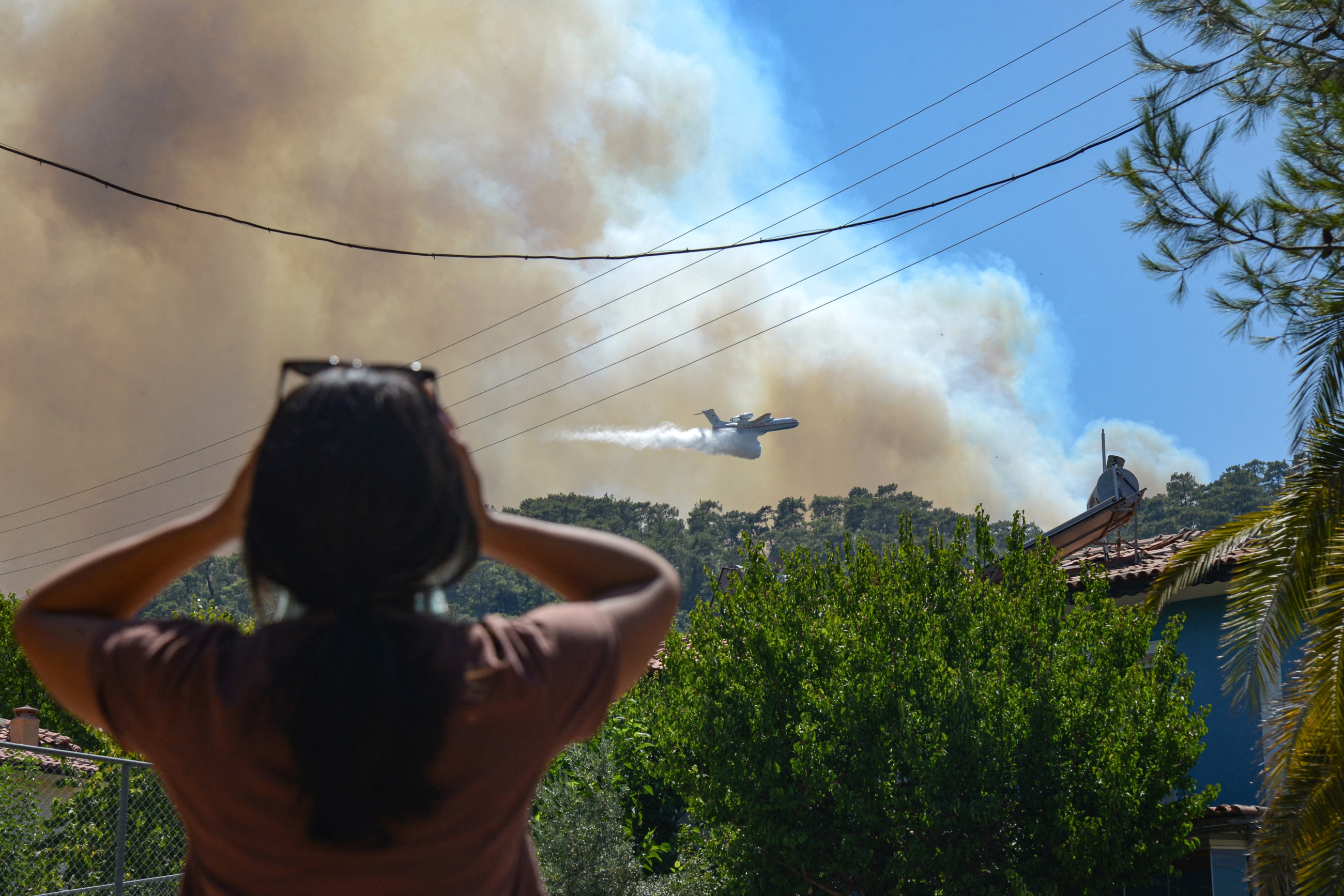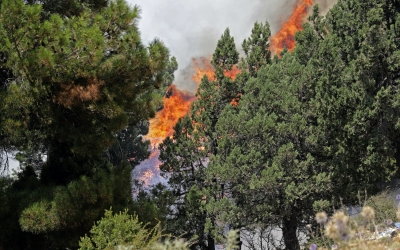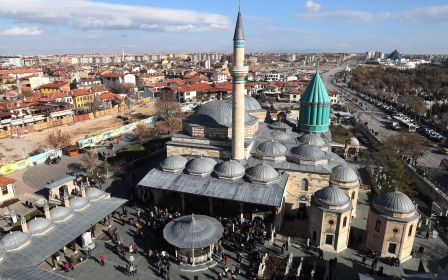Middle East wildfires: Six dead as Turkey fights blazes for fourth day

Six people have been reportedly killed as wildfires burnt for a fourth day through southern Turkey on Saturday.
The wildfires broke out on Wednesday and have since injured more than 300 and forced the evacuation of villages and hotels, as fire crews attempted to tackle the blazes.
The toll rose after the bodies of two workers who had been trying to put out the fires were found, state news agency Anadolu reported.
The agency said another fire began on Saturday in the tourist city of Bodrum with other reports saying people had been evacuated from their homes and hotels.
Ten fires are still going and another 88 have been brought under control since Wednesday, Agriculture and Forestry Minister Bekir Pakdemirli tweeted.
New MEE newsletter: Jerusalem Dispatch
Sign up to get the latest insights and analysis on Israel-Palestine, alongside Turkey Unpacked and other MEE newsletters
Investigators are trying to establish if some of the fires were started deliberately.
President Recep Tayyip Erdogan thanked Russian counterpart Vladimir Putin during a phone call for sending planes and helicopters to help, the presidency said.
The Turkish leader has taken flak at home after it emerged that Turkey had no firefighting planes despite one-third of its territory being forested and fires becoming an increasing problem.
"The main reason for these issues with planes is that the Turkish Aeronautical Association has not been able to update its fleet and technology," Erdogan said during a visit to the town of Manavgat, one of the affected areas.
More than 2,600 fires have erupted each year on average in the last decade, but that figure jumped to almost 3,400 last year, said Husrev Ozkara, vice chair of the Turkish Foresters Association.
The Middle East has been seeing record temperatures in recent years, something that many have attributed to climate change.
In the last two years, hundreds of fires have swept across Lebanon and the coastal highland regions of Syria during summer heatwaves. These fires reached residential areas and forced hundreds of people to evacuate their homes.
Apart from wildfires, the blazing heat has caused electricity and water shortages.
Environmental analysts have said that extreme weather events are likely to become more common as global warming continues to have an impact.
Middle East Eye delivers independent and unrivalled coverage and analysis of the Middle East, North Africa and beyond. To learn more about republishing this content and the associated fees, please fill out this form. More about MEE can be found here.





